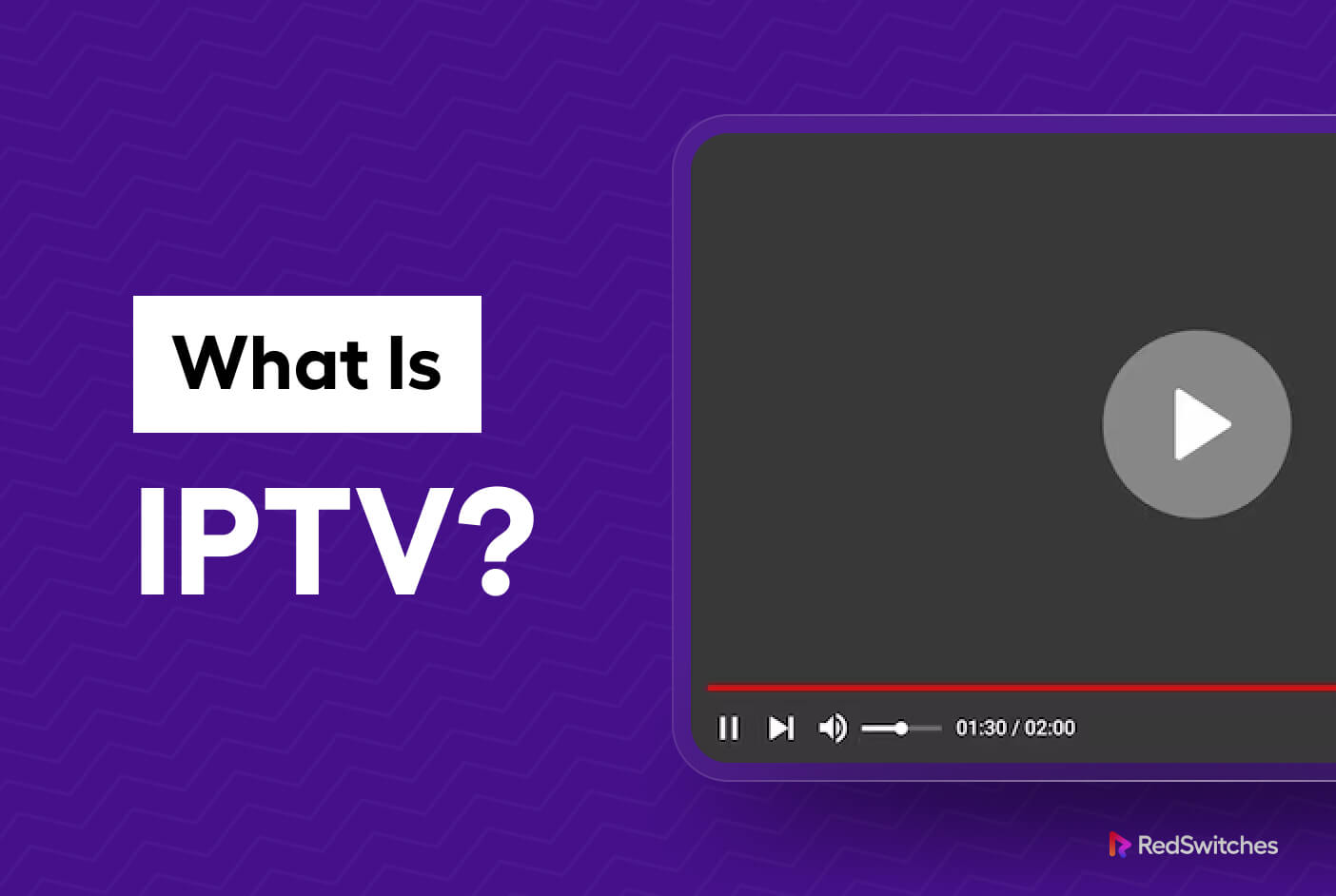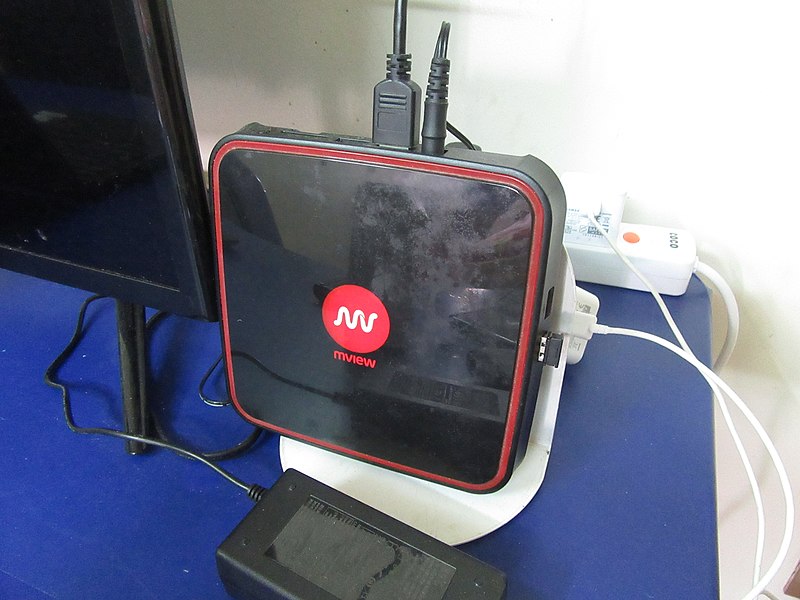IPTV vs. Cable television-- Which One is Right for You?
IPTV vs. Cable television-- Which One is Right for You?
Blog Article
Exactly How IPTV Functions: Your Total Overview to Streaming Television Online
IPTV, or Internet Method Tv, stands for a significant shift in exactly how we consume tv content, moving far from typical broadcasting approaches to a much more flexible, internet-based technique. By utilizing a client-server design, IPTV enables individuals to access a huge range of programs with digital packets sent over broadband connections. Comprehending the intricacies behind this modern technology-- such as its elements, benefits, and different solution kinds-- can be important for making informed choices in today's digital landscape. As we explore these elements, the effects for your watching experience may end up being a lot more pronounced.
What Is IPTV?
In the world of digital media, IPTV, or Net Procedure Tv, represents a transformative method to supplying television web content. Unlike typical broadcasting approaches, which depend on wire, satellite, or terrestrial systems, IPTV utilizes net protocol to stream material straight to devices such as smart devices, tablets, and tvs. This innovation allows customers to access a wide range of programming through high-speed net links, providing adaptability and ease.
IPTV can be classified into 3 primary service models: online tv, video as needed (VOD), and time-shifted television. Live television enables individuals to watch programs in real-time, while VOD gives access to a library of material that can be watched at the audience's benefit. Iptv. Time-shifted television enables customers to watch shows at their favored time, even if they originally aired real-time
Additionally, IPTV usually includes interactive functions, such as electronic program overviews and video recording abilities, boosting the checking out experience. As customers significantly demand personalized content and on-demand services, IPTV stands out as an engaging solution, reshaping the television landscape and offering unprecedented options for audiences worldwide.
Just How IPTV Works
The seamless integration of modern technology and customer experience specifies just how IPTV operates. Web Protocol Tv (IPTV) delivers tv programming and various other multimedia material by means of net procedures, instead of conventional terrestrial, satellite, or cable television layouts. This process entails encoding video content into digital packages that are transmitted over a broadband internet link.
IPTV typically utilizes a client-server design where web content is saved on a web server and sent to the customer's gadget-- such as a wise TV, computer system, or smart phone-- upon request. The web content delivery is helped with through a set-top box or an application that deciphers the incoming information and offers it on the display. Notably, IPTV operates a real-time or on-demand basis, allowing customers to access a vast selection of networks and shows.
A critical facet of IPTV is its reliance on a durable broadband connection, which makes certain smooth streaming and high-grade video clip playback. Additionally, IPTV systems often integrate advanced functions such as digital program overviews (EPGs), time-shifting, and video-on-demand (VOD), enhancing the viewing experience. On the whole, IPTV stands for a considerable evolution in how viewers consume tv web content, leveraging the power of the web for improved access and flexibility.
Benefits of IPTV
While traditional television methods frequently restrict customer selections and access, IPTV supplies many benefits that boost the overall watching experience. One of the primary benefits is the comprehensive range of material readily available. Audiences can access a vast library of networks, on-demand programs, and movies, customized to individual preferences.
Additionally, IPTV sustains multiple devices, permitting customers to stream web content on smartphones, tablets, clever TVs, and computers. This adaptability guarantees that visitors can see their favorite programs anytime and anywhere, as long as they have a web connection. IPTV typically features interactive elements, such as record, time out, and rewind performances, providing individuals with greater control over their checking out practices.
Cost-effectiveness is another remarkable advantage. Many IPTV services use competitive pricing contrasted to conventional cable memberships, typically without lasting agreements or concealed costs. This cost makes it much easier for customers to explore numerous channels and web content without considerable financial dedications.
Last but not least, IPTV normally boasts superior photo high quality, consisting of high-definition and 4K choices, improving the total viewing experience. Collectively, these advantages make IPTV an engaging option for modern-day viewers looking for adaptability, range, and high quality in their home entertainment alternatives.
Kinds Of IPTV Provider
IPTV services can be classified into a number of distinctive types, each accommodating various customer requirements and preferences. The primary categories include live television, on-demand material, and time-shifted IPTV.
Live television IPTV supplies real-time streaming of broadcast networks, enabling visitors to enjoy programs as they air. This service closely appears like traditional cable, providing access to a series of channels, consisting of information, sporting activities, and enjoyment.
On-demand IPTV, on the various other hand, allows customers to see and select web content at their benefit. This consists of films, series, and documentaries that can be streamed whenever the customer picks, offering flexibility and personalization.
Time-shifted IPTV integrates components of both online and on-demand services. It allows audiences to stop briefly, rewind, or document live check this site out broadcasts, offering them the ability to manage their seeing experience. This service is especially helpful for those with hectic routines, as it fits viewers that might miss out on online programs.

Establishing IPTV
Establishing IPTV involves a number of vital steps to guarantee a smooth watching experience. Initially, you require a helpful site secure web connection, preferably a broadband solution with a minimum rate of 10 Mbps for basic definition and a minimum of 25 Mbps for high interpretation streaming. This guarantees very little buffering and a smooth playback.
Next, choose an IPTV company. Study various options, contrasting their channel offerings, rates, and user reviews. You commonly get login credentials and a link to access the IPTV service. when you have actually picked a copyright.
To start streaming, you'll need a suitable tool - Iptv. Lots of IPTV solutions can be accessed with Smart TVs, streaming boxes like Roku or Amazon Fire television, computers, or smart phones. Download and install the matching app or software program for your selected platform
After setup, log in using your qualifications and set up any needed setups, such as adult controls or channel preferences. Ultimately, link your tool to your tv by means of HDMI, and you're ready to enjoy a wide selection of channels and on-demand web content. Regularly check for software program updates to enhance efficiency and security, making sure an optimal IPTV experience.
Final Thought

IPTV, or Web Protocol Television, stands for a significant change in just how we take in television content, moving Full Article away from typical broadcasting methods to an extra flexible, internet-based technique.In the realm of electronic media, IPTV, or Web Method Tv, stands for a transformative strategy to supplying television web content.IPTV can be categorized right into 3 main solution designs: online television, video clip on need (VOD), and time-shifted television. Internet Protocol Television (IPTV) provides television shows and various other multimedia web content by means of web protocols, rather than conventional terrestrial, satellite, or cable television layouts. Overall, IPTV represents a substantial evolution in just how customers take in tv material, leveraging the power of the internet for enhanced access and adaptability.
Report this page